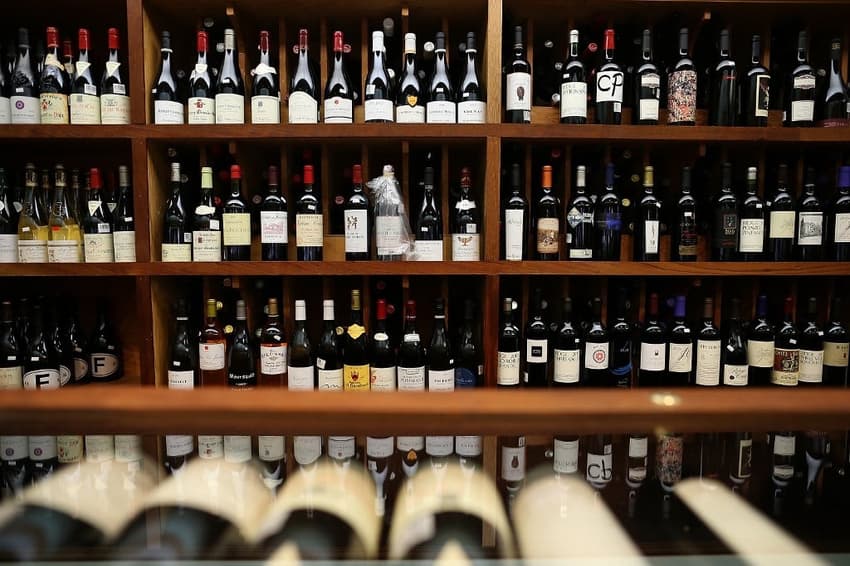Spanish wine labels to include nutritional value from the end of 2023

There will be some changes on that bottle of wine you pick up in a Spanish supermarket from the end of the year.
Bottles of wine sold across the EU must start displaying the contents’ nutritional value from the end of the year – but winemakers have avoided having to include a Nutri-Score table on their products.
Winemakers have fought a rearguard action against the introduction of nutritional labelling on their produce for more than 40 years – when the first European rules on labelling of the composition and nutritional value of food products were first introduced.
The labelling of alcoholic beverages has proliferated in EU countries in that time, with the risk of creating trade barriers between states, prompting the European Commission to opt for a standard model.
In 2021, it took advantage of a revision of regulations on food to introduce rules requiring winemakers to list ingredients and nutritional values for wine, from December 8th, 2023.
READ ALSO: Ten facts you probably didn't know about Spanish wine
In practical terms, this means that labels on bottles of wine will, from that date, have to list any added sugars, preservatives and other stabilisers used in the manufacture of the wine.
Wine bottled before that date, however, can be sold for a further two years without requiring the addition of this information.
Last year, Italian producers wrote to President Macron to prevent the addition of a Nutri-Score label on wine – as is the case on food products – and for which all wines would have obtained an “F” rating.
They successfully argued that such a rating would not make sense on wine.
As a result, European institutions have agreed that only the energy value – in kilocalories or kilojoules (the metric measurement of calories). Other information, including ingredients, will be allowed via digital format accessed by scanning a QR code printed on the label.
This will avoid the need for wine producers to list E numbers, which are not well regarded, on their products.
READ ALSO: Spain's wine growers forced to adapt to climate change
Comments
See Also
Bottles of wine sold across the EU must start displaying the contents’ nutritional value from the end of the year – but winemakers have avoided having to include a Nutri-Score table on their products.
Winemakers have fought a rearguard action against the introduction of nutritional labelling on their produce for more than 40 years – when the first European rules on labelling of the composition and nutritional value of food products were first introduced.
The labelling of alcoholic beverages has proliferated in EU countries in that time, with the risk of creating trade barriers between states, prompting the European Commission to opt for a standard model.
In 2021, it took advantage of a revision of regulations on food to introduce rules requiring winemakers to list ingredients and nutritional values for wine, from December 8th, 2023.
READ ALSO: Ten facts you probably didn't know about Spanish wine
In practical terms, this means that labels on bottles of wine will, from that date, have to list any added sugars, preservatives and other stabilisers used in the manufacture of the wine.
Wine bottled before that date, however, can be sold for a further two years without requiring the addition of this information.
Last year, Italian producers wrote to President Macron to prevent the addition of a Nutri-Score label on wine – as is the case on food products – and for which all wines would have obtained an “F” rating.
They successfully argued that such a rating would not make sense on wine.
As a result, European institutions have agreed that only the energy value – in kilocalories or kilojoules (the metric measurement of calories). Other information, including ingredients, will be allowed via digital format accessed by scanning a QR code printed on the label.
This will avoid the need for wine producers to list E numbers, which are not well regarded, on their products.
READ ALSO: Spain's wine growers forced to adapt to climate change
Join the conversation in our comments section below. Share your own views and experience and if you have a question or suggestion for our journalists then email us at [email protected].
Please keep comments civil, constructive and on topic – and make sure to read our terms of use before getting involved.
Please log in here to leave a comment.